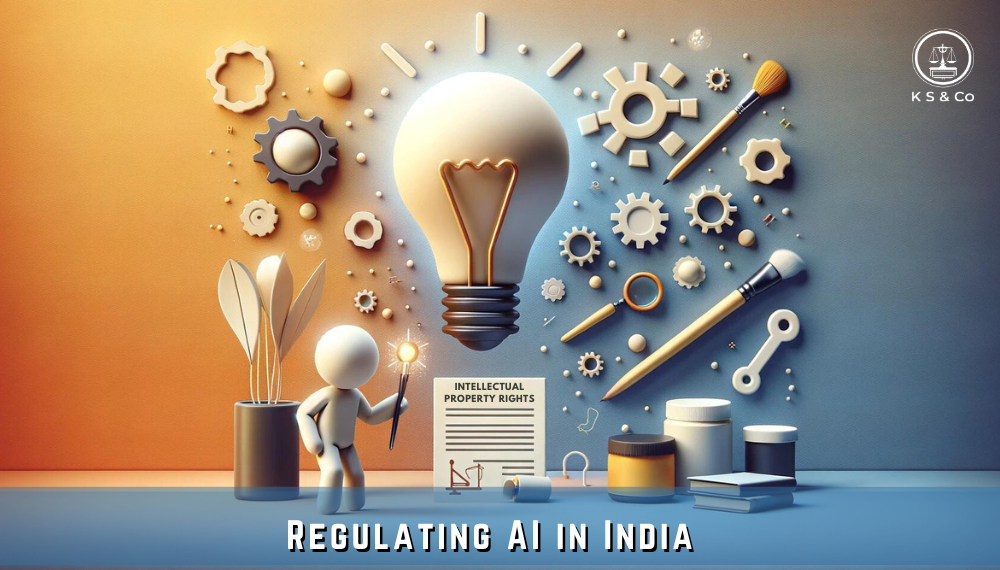Case Law Updates:
Union of India v. Rajendra N Shah & Anr. (Civil Appeal No(s). 9108-9109 of 2014) Supreme Court Judgment dated 20/07/2021
Factual Background
On 7th December 2004, the Conference of State Cooperatives Ministers constituted a High-Powered Committee supervised by the Government of India. The Committee was constituted with the agenda to “prepare a road map for cooperatives over the coming years”.[1] However, this was complicated as ‘Cooperatives’ is a State subject under the Constitution of India. State Cooperative laws and their implementation have vastly differed from State to State. However, changes in political authority at the State level over the years have impaired the continued functioning as a democratically elected cooperative institution. The root cause determined was the common problem of governance which could be resolved through the creation of a uniform law that governs cooperatives.[2]
In order to resolve/address key issues surrounding the empowerment of cooperatives across States in India like voluntary formation, autonomous functioning, democratic control, professional management, timely elections, general body meetings, and professional audit, the Committee recommended the need for a higher authority to ensure that State Cooperative laws follow the model law and any transgression is judiciable. After multiple deliberations by the Centre with State Governments, the Constitution (97th Amendment) Act, 2011 was passed.[3]
The Constitution (97th Amendment) Act, 2011 (‘97th Amendment Act’), was passed by the Lok Sabha and Rajya Sabha on 22nd December 2011 and 28th December 2011 respectively. The President of India gave assent to this amendment on 12th January 2012 and it came into force on 15th February 2012. This amendment introduced Part IX-B with the chapter heading ‘The Co-operative Societies’ containing Articles 243ZH to 243ZT.[4] Furthermore, it inserted Article 43B in Part IV of the Constitution.
Articles 243ZH to 243ZT (Part IX-B) focused on the extent to which the Centre can lay down rules, regulations, or policies for the effective functioning of cooperative societies.
Article 43B forms a part of the Directive Principles of State Policy wherein the State shall “endeavour to promote voluntary formation, autonomous functioning, democratic control and professional management of cooperative societies”. This provision was inserted to create better social and economic conditions by which citizens would be able to lead a good life. The 97th Amendment Act also modified Article 19(1)(c) of the Indian Constitution to add that all Indian citizens have the right to form Co-operative Societies.
High Court Decision
In September 2012, Rajendra N Shah, an activist who is a part of the Consumer Protection Analytic Committee (CPAC) filed a Public Interest Litigation before the Gujarat High Court seeking the quashing of the said 97th Amendment Act as ultra vires to the Constitution of India, 1950. The Gujarat High Court division bench of the then Chief Justice Bhaskar Bhattacharya and Justice JB Pardiwala allowed the said writ petition. The issue presented before the High Court was whether Part IX-B is unconstitutional for want of ratification by half of the States under the proviso clause to Article 368(2).
The High Court on 22nd April 2013, declared that the said constitutional amendment inserting Part IX-B is ultra vires the Constitution for the want of ratification as per the proviso clause of Article 368(2).[5] Aggrieved by the High Court’s decision, the Union of India, filed an appeal before the Supreme Court of India.
Primary Issue before the Supreme Court
- Whether the 97th Amendment Act, 2011 is unconstitutional or void for want of ratification by half of the States under Article 368(2) proviso of the Constitution of India?
- Whether Part IX-B restricts the exclusive power of the State Legislature to enact legislation on a matter provided in the State List (i.e, Cooperative Societies)?
- Whether Article 243ZR and Article 243ZS can continue to exist or are held to be unconstitutional?
Decision of the Supreme Court
- 97th Amendment Act, 2011 is unconstitutional
The Court first perused Article 368 and examined the power to amend the Constitution. The Court perused Article 368(2) that explains the procedure to amend any provision of the Constitution. The proviso clause to Article 368(2) states that:
“Such amendment that seeks to make any change in…(c) any of the Lists in the Seventh Schedule… shall require to be ratified by the Legislatures of not less than one-half of the States by resolutions to that effect passed by those Legislatures before the Bill making provision for such amendment is presented to the President for assent.”
The Court subsequently noted that the 97th Amendment Act, 2011 had not been ratified by the required number [as expressed in the proviso clause to Article 368(2)] of States and therefore, the issue of whether it is unconstitutional or void for want of such ratification arose before the Court.
Shri K.K. Venugopal, the learned Attorney General of India argued in favour of the constitutionality of the 97th Amendment Act, 2011 and submitted that[6]:
- As many as 17 out of 28 States have enacted legislative measures in conformity with Part IX-B. Thus, more than half of the States had, in effect, accepted and applied the provisions of Part IX-B.
- Constitution 97th Amendment was preceded by a detailed consultation with the State Governments as a result of which no State Government has come forward to challenge the same.
- On a reading of several judgments of this Court dealing with the ratification of constitutional amendments, argued that there is no change either directly or in effect to Article 246(3) of the Constitution of India as no additional power is given to the Union of India. Thus, Part IX-B did not impact the State’s legislative power.
- Ratification by States is a mere procedure for amendment and deviation from it, if any, will not amount to a violation of the basic structure of the Constitution. Thus, ratification is unnecessary.
However, the Supreme Court of India did not accept the arguments of the learned Attorney General. Referring to Builders’ Association of India v. Union of India[7] and a passage from HM Seervai’s Constitutional Law of India (4th Edition)[8], and other judicial precedents where various tests for the application of Article 368(2) proviso clause was discussed, Justice Nariman in para 56 stated that the word “change” mentioned in Article 368(2) proviso need not be interpreted in a direct or literary sense to add, subtract, or modify the language of a provision. The judgements relied on “speak of a change-in-effect which would mean a change which, though not in the language of any provision of the Constitution, would yet be a change which would impact a particular article and the principle contained therein in some significant way”.
In para 60 of the Judgment, it was stated that “any significant addition or curtailment of a field of legislation which is contained in an Entry in List II of the 7th Schedule of the Constitution would also amount to a ‘change’ so as to attract the proviso to Article 368(2)”. It is clearly established that Part IX-B would contain provisions that provide powers to the Central Government to ensure that cooperative societies function in a democratic, professional, autonomous, and economically sound manner. This would curtail the powers of the State legislature as the States would have to conform to the newly inserted part.
Thus, such change would attract the proviso to Article 368(2) which would require ratification. The Court did not favour the first and second arguments from the Union of India that discussed implied ratification. The court stated that “When a citizen of India challenges a constitutional amendment as being procedurally infirm, it is the duty of the court to examine such challenge on merits as the Constitution of India is a national charter of governance affecting persons, citizens, and institutions alike”.[9]
- Part IX-B restricts the exclusive power of the State Legislature to enact legislations regarding Cooperative Societies
A bare reading of Article 246 of the Constitution highlights that the Parliament has the exclusive power to make laws with respect to any matter enumerated in List I in the Seventh Schedule (“Union List”) while the State Legislature has the exclusive power to make laws concerning any matter enumerated in List II in the Seventh Schedule (“State List”). Both the High Court and Supreme Court have observed that “co-operative societies” is a matter enumerated in Entry 32 of List II or State List thereby making it a matter entirely for a State to legislate upon. The Court relied on its own judgement K. Damodarasamy Naidu & Bros. v. State of T.N.[10], (see para 26) to highlight the exclusive power with the State Legislature to make laws, so far as co-operative societies are concerned. Further, the Apex Court in the same paragraph observed that “multi-state co-operative societies” (co-operative societies having objects not confined to one state alone) is a subject-matter enumerated in Entry 44 of List I or Union List thereby making it a matter entirely for the Parliament to legislate upon.
Justice Nariman, in paras 57 & 58 observed that the exclusive legislative power of the State in matters under List II is an important constitutional principle which forms part of the basic structure of the Constitution. Relying on Bhim Singh v. Union of India[11], the court opined that Article 246(3) highlights the quasi-federal nature of the Constitution where although “there is a tilt in favour of the Centre vis-à-vis the States given the federal supremacy principle, yet within their own sphere, the States have exclusive power to legislate on topics reserved exclusively to them”.
- Articles 243ZR and 243ZS can continue to exist
While dealing with the part of Multi-State Co-operative Societies, the Apex Court agreed with the Union’s argument that the part of Part IX-B dealing with Multi-State Co-operative Societies can be severed (following the doctrine of severability) from the other part (dealing only within a State). However, Justice KM Joseph (minority part of the Judgement) had penned a separate opinion partly dissenting with the majority as he expressed his inability to apply the doctrine of severability to sustain those provisions that operate Multi-State Co-operative Societies. He noted that the said provisions (Article 243-ZR and Article 243-ZS) are not independent as they depend upon the provisions contained in Article 243ZI-ZQ which are held void for want of ratification.
He stated that “There can be application and modifications of something which exists. There cannot be either, when the elaborate provisions are to be treated as not born”.[12] Thus, to sustain the provisions that apply to Multi-State Co-operative Societies, the other provisions (that are held void) must be resurrected. Thus, he opined that the doctrine of severability must apply on surer foundations and unless the other provisions, that have been held unconstitutional, are kept alive, Articles 243ZR and 243ZS shall be unworkable.
Conclusion
The Court allowed other appeals and on 20th July 2021, a 3-judge bench comprising Justices R. Nariman, KM Joseph, and BR Gavai provided a split decision (2:1 majority verdict) that disposed of the appeals filed by the Union of India and other appellants as it upheld the Gujarat High Court judgement of 2013 which had struck down the provisions of the 97th Amendment Act, 2011 except to the extent that it introduced Part IX-B in the Constitution of India. The court declared that Part IX-B is operative only insofar as it concerns Multi-State Cooperative Societies both within the States and Union Territories of India. However, the said judgement will not impact the amendments that have been made to Article 19(1)(c) as well as the insertion of Article 43B in the Constitution of India.
This judgement shall provide a major boost for federalism as it acknowledges the exclusive authority of States over its co-operative societies, a sector which is a strong contributor to the country’s economy. The judgement consciously avoided touching certain aspects of the 97th Amendment Act, 2011 such as Article 19(1)(c) and Article 43B which are important for the functioning of cooperative societies in India. The former provides the fundamental right to every citizen to form associations in the nature of cooperative societies and the latter (a directive policy) directs the State to promote voluntary formation, autonomous functioning, democratic control, and professional management of cooperative societies.
As a result of this Judgement, the legislature may have to revisit the recommendation of the High-Powered Committee, and could establish a regulatory authority that will govern State Cooperative Societies. This regulatory authority could ensure accountability of the members of cooperative societies and efficiency in their overall functioning.
[1] Executive Summary of the Report of the High Powered Committee on Cooperatives (May 2009), Ministry of Agriculture: Government of India, http://www.indiaenvironmentportal.org.in/files/hpcc2009new.pdf.
[2] Ibid.
[3] Ibid.
[4] The Constitution (Ninety Seventh Amendment) Act, 2011, §4, Acts of Parliament, 2012; https://www.india.gov.in/sites/upload_files/npi/files/amend97.pdf
[5] Rajendra N Shah v. Union of India & Anr., Writ Petition (PIL) No. 166 of 2012.
[6] Civil Appeal No. 9108-9109 of 2014, ¶8.
[7] (1989) 2 SCC 645.
[8] Page 3156.
[9] Para 72 of the majority judgement.
[10] (2000) 1 SCC 521, ¶21.
[11] (2010) 5 SCC 538, ¶¶ 45,46, & 48.
[12] Para 28 of the Justice K.M. Joseph’s dissenting opinion.
*Ashuthosh Vinod is a fourth year student of the B.Com. LL.B. (Hon.s) program at the Institute of Law, Nirma University.






